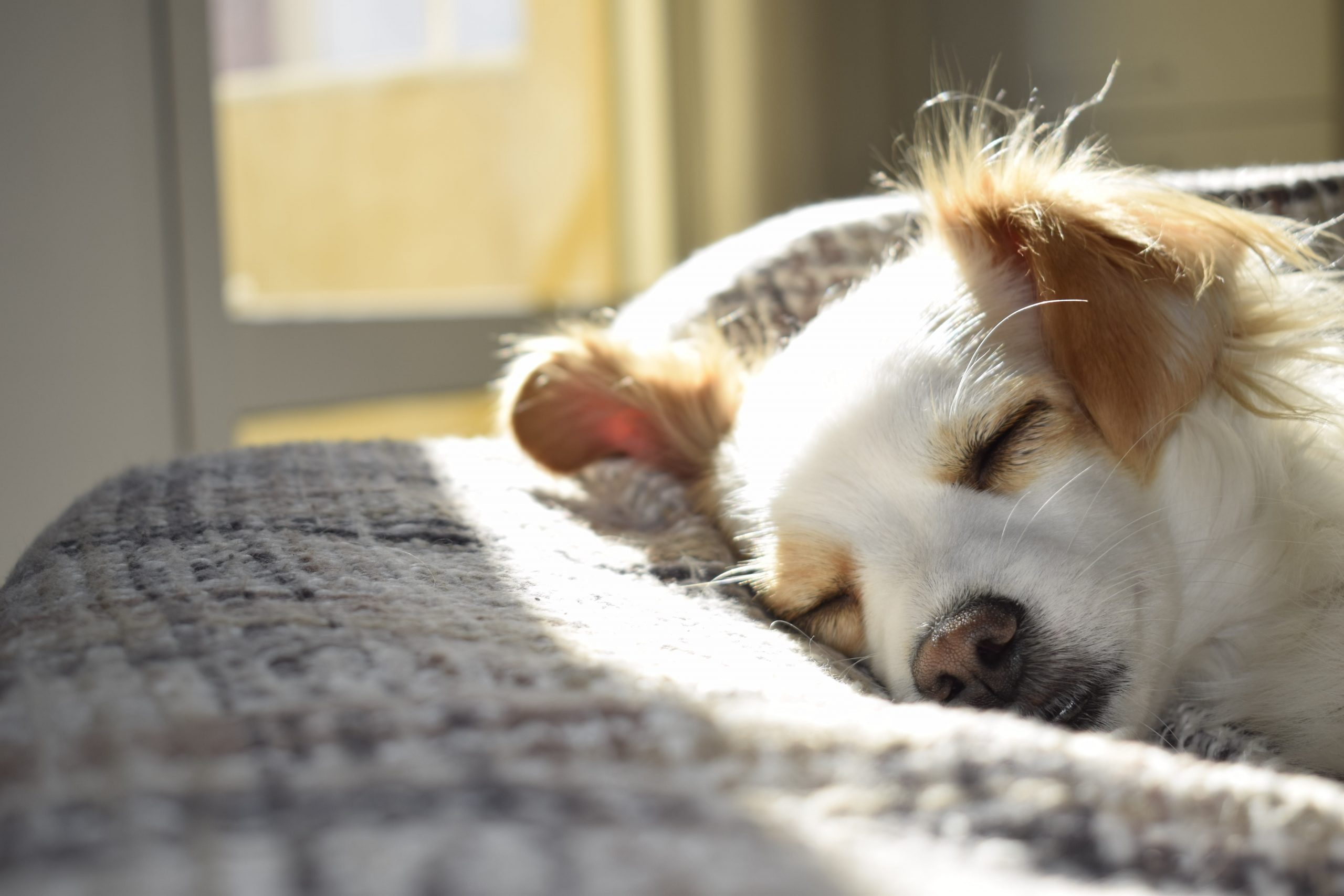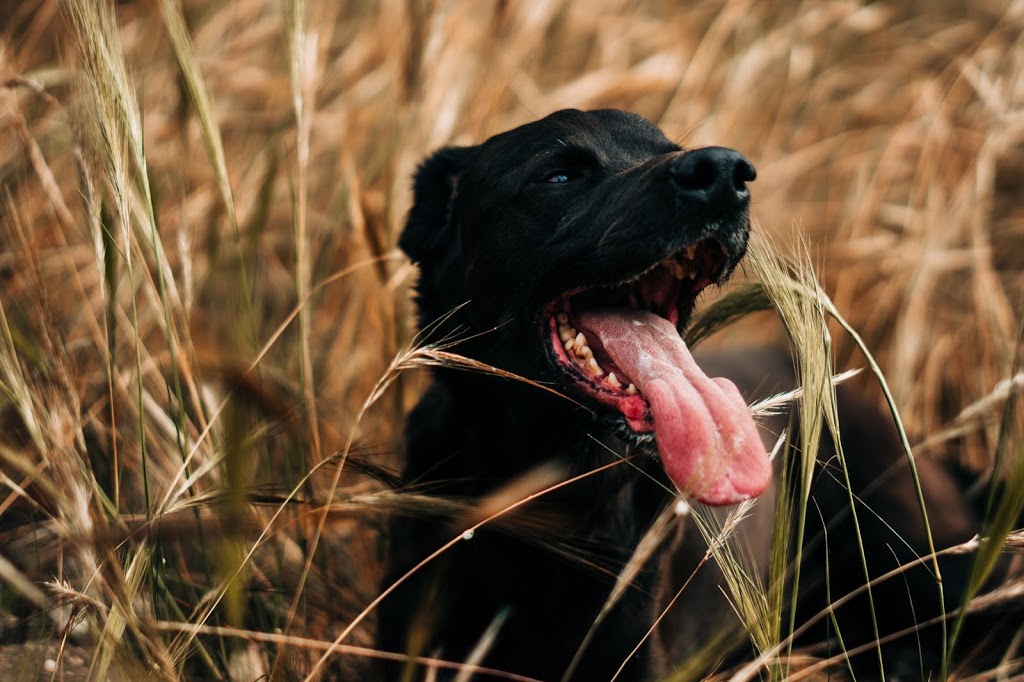Bed wetting in dogs can be a frustrating and stressful experience because dogs are considered as a beloved companion animal, known for their loyalty, affectionate personalities, and playful energy. However, as much as we love them, they can develop issues that cause inconvenience and stress for their owners. One of the most common issues dog owners may encounter is bed wetting. Not only is it unpleasant for the owner, but it can also be a sign of an underlying medical issue. In this article, we will explore the reasons why dogs may wet the bed.
Dogs who follow the house rules can be horrified when they realize that they’ve leaked – even though it occurs during sleep. Plastic sheets aren’t the answer, and most likely your long-suffering pet wouldn’t be happy alone outside and urine soiling isn’t something pet owners enjoy discussing.
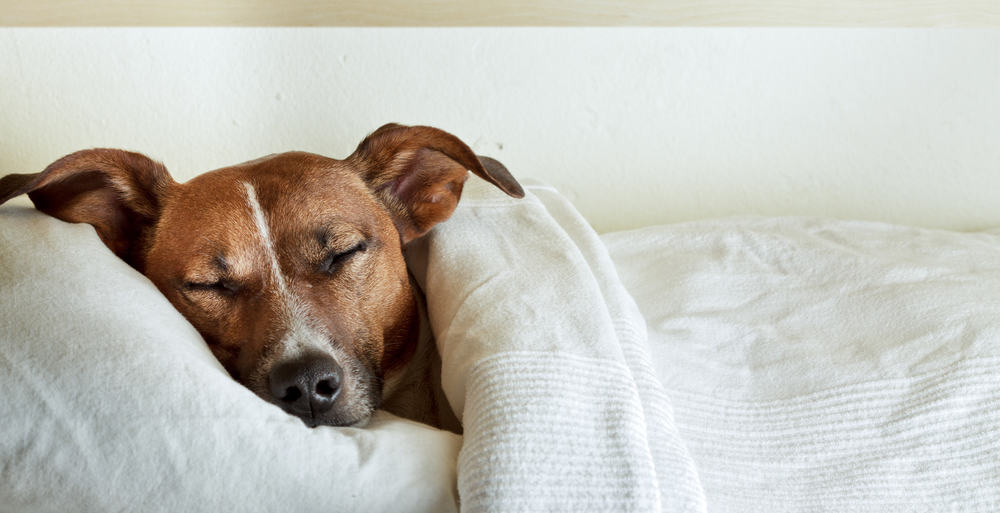
Reasons why dogs wet the bed
Many assume it’s a behavioral problem, believing they’ve failed to properly train their pets. But poor bladder control following spaying is actually a physical disorder that’s seen mostly in middle-aged female dogs and can occur any time after surgery. In addition, it’s more common in large breeds and those who suffer from obesity.
In fact, There are several reasons why dogs may wet the bed, including medical and behavioral issues. Some of the common reasons include:
Medical Issues
Medical issues are the most common cause of bed wetting in dogs. Some of the most common medical issues include urinary tract infections, bladder infections, bladder stones, and diabetes. These conditions can cause dogs to have difficulty controlling their bladder, leading to accidents in the house, including on the bed.
Urinary tract infections (UTIs) are common in dogs, especially in females. UTIs can cause pain, discomfort, and frequent urination. In severe cases, UTIs can lead to bed wetting.
Bladder stones are another common medical issue in dogs. These are hard deposits that form in the bladder and can cause discomfort, pain, and difficulty urinating. Bladder stones can irritate the bladder, causing dogs to have accidents in the house.
Diabetes is a condition that affects the body’s ability to regulate blood sugar levels. Dogs with diabetes may have increased thirst and urination, leading to accidents in the house, including on the bed.
Behavioral Issues
In addition to medical issues, behavioral issues can also cause bed wetting in dogs. Some of the most common behavioral issues include anxiety, stress, and submissive urination.
Anxiety and stress can cause dogs to have accidents in the house, including on the bed. Dogs may become anxious or stressed due to changes in routine, new environments, or loud noises. Separation anxiety is another common cause of stress in dogs, which can lead to bed wetting.
Submissive urination is a behavior where a dog urinates out of submission or fear, especially if they are being scolded or punished. This behavior is more common in puppies and young dogs but can occur in dogs of any age.
Old Age
As dogs age, they may lose control over their bladder muscles, leading to bed wetting. Senior dogs may also develop medical conditions that increase the likelihood of accidents in the house, including on the bed.
How to Prevent Bed Wetting in Dogs?
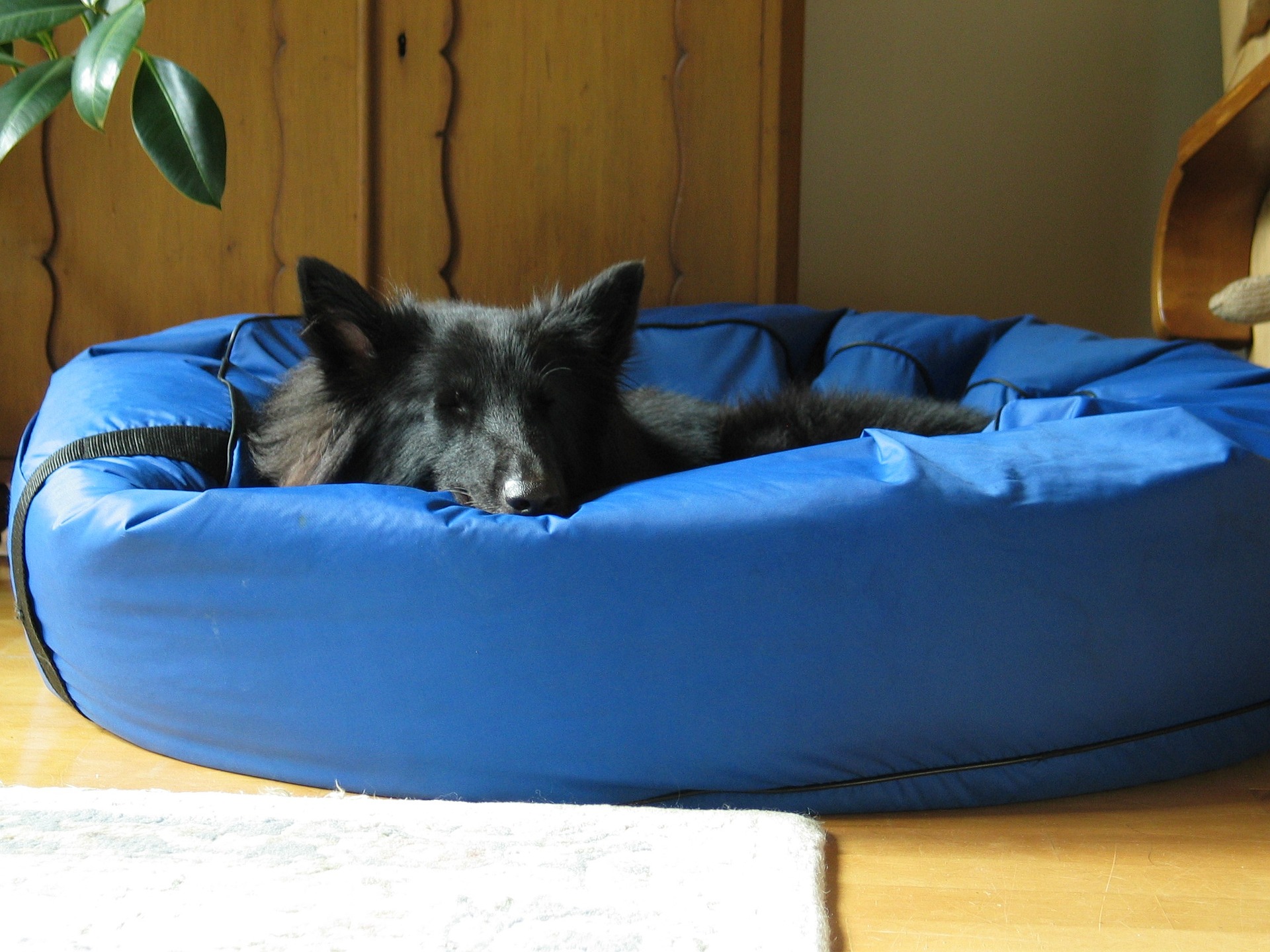
Preventing bed wetting in the future involves addressing the underlying causes. Regular vet check-ups can help detect any medical issues early on. Proper feeding, adequate exercise, and monitoring water intake can also help prevent bed wetting in the future.
Bed wetting in dogs can be a frustrating and stressful experience for both the dog and their owner. Fortunately, there are steps you can take to prevent bed wetting and ensure your dog is happy and healthy. Preventing bed wetting involves addressing the underlying causes. Regular vet check-ups can help detect any medical issues early on. Proper feeding, adequate exercise, and monitoring water intake can also help prevent bed wetting in the future. Here are some tips for preventing bed wetting in dogs:
-
Proper feeding
Proper feeding is important for preventing bed wetting in dogs. Make sure your dog is getting a balanced diet that is appropriate for their age, weight, and activity level. Overfeeding or underfeeding can lead to urinary problems that may cause bed wetting.
-
Adequate exercise
Regular exercise is important for your dog’s overall health and can also help prevent bed wetting. Exercise can help improve bladder control, increase muscle tone, and promote a healthy urinary tract.
-
Monitoring water intake
Monitoring your dog’s water intake can help prevent bed wetting. Make sure your dog has access to fresh water throughout the day, but limit their intake before bedtime. Avoid giving your dog water or any other liquids within two hours of bedtime.
-
Take your dog for regular vet check-ups
Regular vet check-ups can help detect any medical issues early on and prevent bed wetting. During check-ups, your vet can screen for urinary tract infections, bladder stones, and other conditions that may cause bed wetting.
-
Crate training
Crate training can help teach your dog to hold their bladder and prevent accidents. Start by introducing your dog to the crate and gradually increasing the amount of time they spend in it. Make sure the crate is appropriately sized for your dog and includes a comfortable bed or blanket.
-
Positive reinforcement
Using positive reinforcement can help address behavioral issues that may lead to bed wetting. Reward your dog for good behavior, such as going outside to urinate or using the crate appropriately.
-
Stick to a consistent routine
Sticking to a consistent routine for feeding, walking, and playtime can help prevent bed wetting in dogs. Dogs thrive on routine and consistency, and knowing when to expect certain activities can help them develop good habits and avoid accidents.
What would the vet suggest?
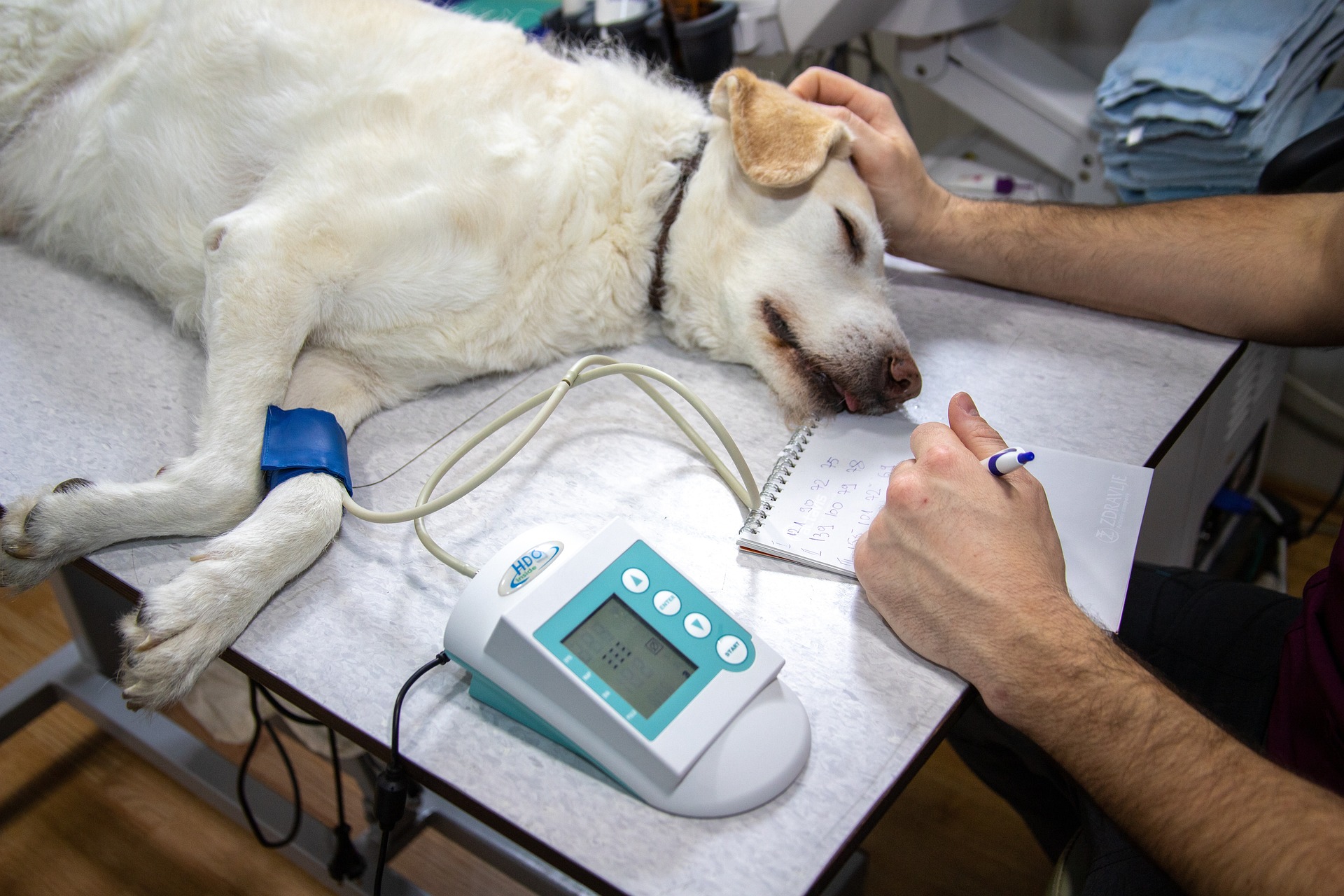
Medication
For dog owners who want to try and help their pets, the answer may lie in a liver-flavored tablet. Proin tablets can be given twice daily, and make a difference in both a pet and an owner’s life because urine leakage can damage relationships. Consider this: 18 percent of the dogs in shelters were surrendered by frustrated owners because of house soiling.
Alternatively, there are other possible causes, so it’s essential to allow your veterinarian to make an accurate diagnosis before medication is started.
Urinary track infections
Urinary tract infections are common, especially for indoor girls. Bladder stones can also cause house soiling. And elderly dogs may urinate indoors because of senile brain changes especially female dogs, this problem called cognitive dysfunction syndrome. Pets with urinary symptoms need to see their doctors.
If a thorough exam and urinalysis come up normal, a healthy female dog who leaks only when resting or sleeping most likely has urinary incontinence due to reduced estrogen. You can explain all of this to your dog, ending “the talk” by telling her that she has urethral sphincter hypotonus. With her leader so well-informed, she is sure to feel better.
Veterinarians like to uncover these cases because almost all of them can be turned from frustration to success. Proin is often chosen because it is the only non-hormone treatment option, and also because it’s palatable and easy to dose. But in certain cases, due to pet irritability, restlessness, or medical conditions, Proin may be inappropriate. For those dogs, an old standby treatment “a synthetic estrogen called diethylstilbestrol (DES)“ may be used.
To that end, a rolled-up newspaper won’t solve this problem, and won’t improve behavioral house soiling either. Leaking urine during rest or sleep is not your dog’s fault. There is value in spaying your female dog, but giving up their ovaries means the sphincter muscle in the bladder can be left just weak enough to relax and release urine. It may happen any time they drift off. The result is a tell-tale wet spot on their bed. About 20 percent of spayed dogs face this messy downside.
In conclusion, bed wetting in dogs can be a sign of an underlying medical or behavioral issue. It’s important to take your dog to the vet to rule out any medical issues and take steps to address the underlying causes. With proper care and attention, you can help prevent bed wetting in the future and enjoy a happy, healthy life with your beloved companion.


